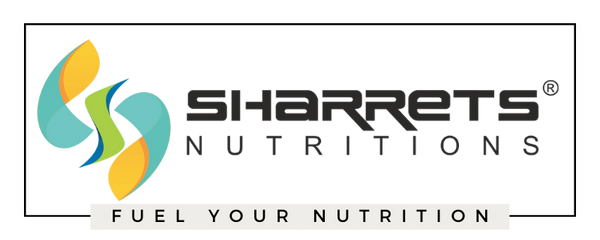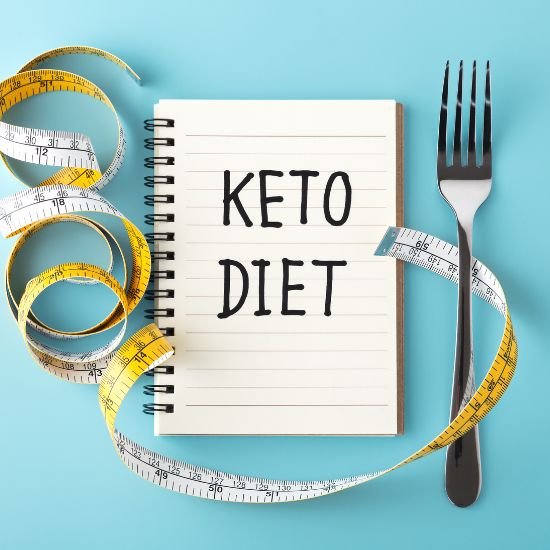
Why You should take dietary Supplements ?
Share
You are what you eat . But What , exactly are you eating ?
The National health and wellbeing survey revealed that more than half of all Indians worry about their nutrition intake.
Today, we eat for all sorts of reasons other than nutrition .
Meals can be social and celebratory - a birthday lunch with friends . Or solitary and rushed - toast eaten in the car on the way to work .
Even the concept of ‘meals’ is becoming blurry . Home -cooked meals made with fresh ingredients are becoming a weekend treat instead of a daily staple.
While this is not necessarily a bad thing , it’s hard to be sure our bodies are getting the nutrients they need . Even if we eat the right food , we might not be absorbing what we need.
The worry is , deficiencies are rarely obvious. They creep up on us as colds that don’t go away . We wake up tired. Our eyes have to work harder . Aging bones won’t let us live as actively as we’d like.
At Sharrets Nutritions , we acknowledge that a balanced diet based on fresh food , simply cooked is the best way to avoid vitamin and mineral deficiencies . At the same time , we recognize this is not always possible. So we develop high quality supplements to make up the shortfall.
How long do Supplements take to take effect ?
This depends on the type of Supplement and your particular need for that supplement. For example , if you are lacking B group vitamins , a supplement may help to boost energy levels within a few days. This is because B group vitamins help convert carbohydrates into glucose , which the body converts into energy . However , you should always take the full course of a supplement , every day if directed , before assessing whether the vitamin or supplement has been effective. It may take up to a month to correct some deficiencies.
Can too much of one Vitamin be dangerous ?
Certain vitamins should be avoided in some situations : For example , if you are taking a particular medication . For this reason it is always smart to check with your healthcare professional before taking supplements. Vitamins themselves are usually classified as being either water soluble or fat soluble.
Water -soluble vitamins (including Vitamin C and the B group) are not stored in the body for long periods . Any excess is excreted (eg. in luminous green wee). For this reason , they are regarded as being non-toxic if taken at the recommended dose.
However , Vitamins A , D , E and K are fat -soluble . They are stored in the liver , and potentially may cause poisoning if excessive doses are taken for long periods.
If you take only the dosage recommended on the label , or recommended by your healthcare professional , it is highly unlikely you will ever have a problem .
How many vitamins are too many ?
Your need for vitamins should be assessed on an individual basis . The types , combinations and dosage of vitamins required will differ from person to person depending upon factors such as age , state of health , diet and lifestyle.
How do you know if your diet is lacking ?
It’s not always easy to tell , but here are some FAQ’s that can help you assess your need for supplements.
Do you drink tea or coffee ? Eat spicy food ?
These can cause the lining of your digestive system to become inflamed . This means that even if you do eat a good diet , some nutrients may not be absorbed .
Do you drink alcohol ?
Even moderate drinking can damage the liver and pancreas - affecting your digestion and metabolism . Alcohol increases the body’s need for A , C an B group vitamins as well as the minerals zinc , magnesium and calcium .
Do you smoke ?
Smoking irritates the digestive tract and increases your need for Vitamin C by as much as 30%.
Do you use laxatives ?
Overuse of laxatives can mean vitamins and minerals leave your body before they are absorbed . Ingredients in many laxatives , such as paraffin , increase the loss of fat-soluble vitamins A , E and K.
Are you always trying new diets ?
Diets that eliminate entire food groups are dangerous. Many popular diets , if followed to the letter , can leave you deficient in Vitamins A, D & E.
Do you eat very little ?
Some people simply have small appetites. If this is you , you might not be getting the vitamins and minerals you need .
Are you a vegetarian ?
If you don’t eat meat , dairy or eggs , it’s important to manage what you do eat very carefully . Many vegetarians are deficient in B12 , which can lead to iron deficiency .
Do you eat convenience foods ?
A lot of white sugar , white flour and white rice means more B group vitamins are needed to process them .
Do you take antibiotics ?
Although effective in killing off bacterial infections , antibiotics can also destroy friendly bacteria in the gut which would normally be producing B group vitamins.
Are you allergic to any foods ?
Even when done for health reasons , cutting entire food groups out of your diet (dairy , for example) can mean serious deficiencies.
Are you Stressed ?
Chemical , physical and emotional stress can increase your need for vitamins B2, B5 , B6 & C.
Do you live in a Metro or big city ?
Air pollution (even air conditioning) exposes us to substances which can cause vitamin reserves to be depleted . Vitamin A is needed to protect cells , while vitamins E and C guard against the toxic effects of many chemicals in polluted air .
Are you in your teens , or is there a teenager in the family ?
Rapid growth , particularly in girls , places big demands on the body’s systems. This is also a stage of life where diets are often less than ideal.
Do you take oral contraceptives ?
“The pill” can decrease absorption of folic acid , and increase your need for vitamins B6 and C , as well as zinc and riboflavin .
Are you over 60 ? For many reasons , older people often have a diet lacking in Vitamins & Minerals - particularly iron , calcium and zinc . Folic acid deficiencies are often found together with a low vitamin C intake.
Are you pregnant , or thinking about having a baby ? Pregnant women need more A, B, D & E vitamins as well as calcium , iron , zinc , magnesium and phosphorous. It’s important to boost your intake of folic acid before conceiving and throughout pregnancy to reduce the risk of spinal cord defects.
Do you spend your days indoors ? Work and illness can mean your time outside is limited . This can result in a deficiency in Vitamin D , which is needed to help absorb calcium .
Do you play a lot of sport ? A very active life can mean even large amounts of healthy food can’t provide the nutrients required to maintain healthy bones and repair muscle . Many athletes are deficient in B group vitamins , vitamin C , zinc and iron .
Have you been ill , or in an accident ? An accident or illness can mean there are more demands being placed on your body than when you are well. Talk to a your health care professional about how supplements may help speed your recovery .
“Bad men live that they may eat and drink , whereas good men eat and drink that they may live.”
















